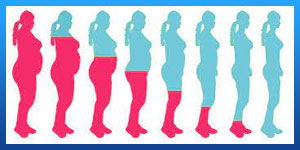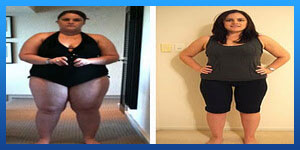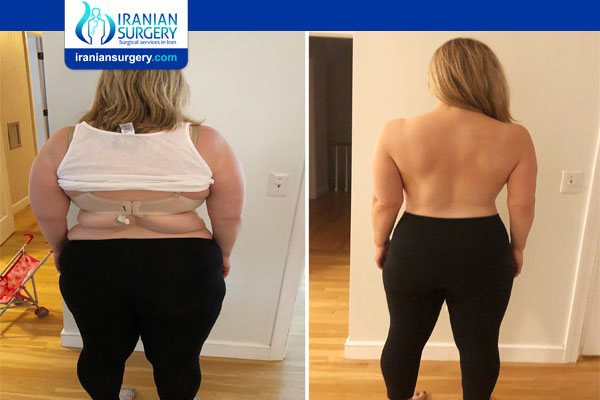How long does it take stomach to heal after gastric sleeve?
How should I sleep after gastric sleeve?
Gastric Sleeve Surgery Recovery Time
What is the Recovery Time for Gastric Sleeve Surgery?
If you are curious to know what the Recovery Time is for Gastric Sleeve Surgery, read the following gastric sleeve recovery guide to learn what you can expect after your sleeve gastrectomy.
Surgery Day
After your gastric sleeve surgery, you will wake up in the hospital, a bit tired, and without a lot of pain. You may feel happy. The happy feeling is usually due to the excellent pain medication your doctor has already administered, but it’s also due, in part, to the sense of relief that comes from knowing that you’re done and safe.
. Pain
Pain is typically moderate on the first day. You still have your IV in your arm, and it’s easy to administer pain medication as needed. Be sure to communicate to your nurse or your surgeon what you need. Individuals respond to pain differently.
You will have 5 or 6 small incisions on your abdomen which will be sutured and covered to heal. The incision that typically causes the most pain is the site that the surgeon removed a large portion of your stomach. The incision is often located in the lower left quadrant of your abdomen. It could also be on the right side. Look for the largest incision.
At this point, you will be laying in a hospital bed so you may feel a general sense of soreness across your abdomen. You may experience residual nausea from the anesthesia, but this should improve quickly.

. Diet
Nothing by mouth at this point. Some surgeons allow their patients to have mouth swabs. Others allow a cup of ice every few hours. You’ll probably feel dehydrated and want to drink something, but you likely won’t be able to do this until the following day.
Your throat is going to be sore and swollen from the ET tube (breathing tube during surgery), so it’s not pleasant to eat or drink at this point anyway. You will be exhausted, and while you might worry that you’ll be hungry, it is likely that you will not be hungry. Part of your stomach has been removed, and your hunger-causing hormone (ghrelin) levels are likely low.
Read more about : Bariatric surgery diet
Read more about : Skin problems after bariatric surgery
Read more about : Bariatric surgery requirements
. Activity
Your surgeon may want you up and walking. Walking helps reduce the pain that can result from the CO2 used during laparoscopic surgery. When you aren’t walking, you’ll mostly be on your back with a slight incline on the hospital bed.
Getting out of bed the first day is difficult. It’s almost like exercising a sore muscle. It will hurt. The more you are out of bed and walking, the better you will feel the following day.
Day 1 after Surgery
You’ve probably had a somewhat restless night that included a lot of channel surfing while dozing in and out of sleep. Today, your radiologist will administer a swallow test to make sure there are no leaks before your surgeon will allow you to drink water.
. Pain
Pain is typically more noticeable at this point. The anesthesia has worn off, and while your pain medications are working, you’re also moving a bit more. When you turn your trunk, pain is evident. Assuming your case was laparoscopic, your pain should be bearable. Different positions will offer different levels of comfort. Your throat is sore, swollen and dry; another source of pain but the small sips of water help.
You will be expected to use the IV pain medicine less and use oral medications more. The IV pain medicine works faster than the oral medicine, so do not wait until the pain is unbearable to ask for the nurse to give you something by mouth.
. Diet
You can drink clear liquids. Go easy but enjoy it. At this point, you may or may not be hungry. Many people are still not hungry at this point. But almost everyone is dehydrated and thirsty.
Follow the diet that your surgeon recommends. Most surgeons will allow for the following foods at this point.
. Broth
. Unsweetened juice
. Milk
. Strained cream soup
. Sugar-free gelatin
Drink only small amounts of food at this point. Do not drink any carbonated beverages and nothing with caffeine. Caffeine has a slight diuretic effect. One of the common reasons for readmission after bariatric surgery is dehydration.
. Activity
You may be carted around for your swallow test in Radiology (which is usually in the basement of most hospitals). After your swallow test, your doctor should meet with you again. At this point, he’ll probably check your pain, remove your catheter, make sure you can get up and on your feet and answer any questions you might have. A few hours later, your surgeon should discharge you with care instructions for your wounds and prescriptions for pain medication. Make sure you get these filled. Head home and read over your post-operative instructions.
Day 2 to 2 Weeks after Surgery
You are most likely on your own at this point. Your surgeon has discharged you from the hospital. That team of people that you had to help is now gone. Your spouse, family, or friend that has taken good care of you may be back at work. You have to do the heavy lifting. And, you may miss the pain pump or the IV administered pain medications that seemed to work better at the hospital.

. Pain
Pain is still bearable for most people. Patients often experience the most pain between days 3 and day 6. Pain during days 3 to 6 is common because you are up on your feet more, turning your trunk more, and generally more active than before.
Typically, people report pain in the range of 5/10 with some people’s pain getting up to a 7/10. Your doctor should have given you instructions regarding pain at this point as well. If the pain is unbearable or not what your surgeon told you to expect, you should let your surgeon know.
Most of your pain is restricted to the port sites (little incisions on your belly covered with a small dressing or glue). The biggest port usually causes most of your pain. The biggest port is the incision where the surgeon removed the resected portion of your stomach. This incision is often stretched to get the stomach out, and that stretching can result in more pain and bruising at this location.
Pain should slowly improve each day. Pain that is associated with vomiting, fever, new pains in the shoulder or back, and pains that don’t respond to oral pain medicine, are all reasons to call your surgeon.
. Diet
Always continue to follow the diet your surgeon has given you. That diet will likely progress from clear liquids to full liquids for the next week.
. Water
. Fat-free milk
. Sugar-free juice
. Broth
. Protein shakes (check with your diet guidelines)
. Sugar-free Jell-O
. Carnation instant breakfast. Look for the sugar-free option (check with your diet guidelines)
. Very thin creamed soups. No chunks.
Remember to stay hydrated. Your body is used to getting a lot of fluids from food, which it will no longer be getting. Stay hydrated and if you have diabetes and be sure to check your sugar levels regularly. Your diabetic medications have likely been reduced as part of your discharge plan. Right now, a sugar of 150 is much better than one of 55.
Read more about : How to massage lumps after liposuction?
Read more about : Lipomatic vs liposuction
Read more about : Gastric sleeve vs gastric bypass
. Activity
At this point, you will probably start to feel exhausted. Your diet is limited, and your body is not used to the limited number of calories. You’ve also just been through major surgery. A lot of your body’s energy is focused on recovery.
As always follow your doctor’s guidelines. As it pertains to activity, this mostly includes rest. Some doctors will want you walking a few times a day around the house. Keep your activity limited. You won’t have the energy for much more.
Climbing stairs is acceptable but step every few seconds. Don’t carry anything up or down the stairs with you. Driving is not permitted while taking narcotic pain medication. Lifting is permitted, as long as it is something you can comfortably lift with one arm.
Week 2 & 3 after Surgery
Some people are ready to get back to work after week 1. Most people are still in too much pain when they twist and turn to think about work. And, surprisingly, many people say they are just too tired to work. Their bodies are still adjusting to the new food regimen.
. Pain
Pain should not be severe. It should be tolerable but probably nagging. It will be most noticeable when you start to do errands, like getting in and out of your car.
. Diet
You will likely eat these soft pureed foods for two to four weeks. This diet includes foods that have the consistency of a smooth paste or thick liquid. There should be no solid pieces of food in the mixture.
Foods that blend well are recommended. These include:
. Soft vegetables – steam or boil them until they are soft.
. Soft cheeses – limit these, they are typically high in fat.
. Ground chicken or beef. Add some beef or chicken stock to keep the meat soft.
. Soups
. Scrambled eggs – these are a great source of protein
. Beans
. Fish
. Yogurt
. Cottage cheese
And it helps to blend the solid food with liquids:
. Water
. Fat-free milk
. Juice
. Broth
Over the next 2 to 4 weeks you’ll probably hate your blender and crave more substantial meals. But your diet hasn’t changed from the pureed foods. It’s essential to stick to the diet that your surgeon prescribes – this can be tough but necessary. Eating solids such as nuts or fibrous vegetables could cause your staple line to rupture, and you could leak. A leak is life-threatening. The good news is that you’ve already lost weight. And this should encourage you to stick to your new diet.
It’s still very easy to become dehydrated, so drink your fluids.
. Activity
Follow the exercise/activity regimen your surgeon has provided. The exercise regimen is not more than simple daily walks. In most instances, patients are encouraged to walk 3 to 5 times per day for 5 to 10 minutes at a time, gradually increasing the length of each walk as tolerated. Other forms of exercise are generally not recommended. Weight training is contraindicated at this point.
If returning to the gym is permitted by your surgeon, cut everything in half; half the time at the gym, half the speed/time on the treadmill, half the weights lifted and reps performed. Gradually work back to where you were pre-operatively.
Week 3 to Month 3
You’re back at work, and you’ve already lost a fair amount of weight. While some people still feel a bit tired, most people are encouraged by their weight loss, feel lighter, and some have more energy than they did before surgery. You may need additional support during this stage. Your mood is likely to be up and down.
. Pain
By month 2, you shouldn’t have much pain, and you are probably off of all pain medications. If you’re still experiencing pain, make sure your doctor is aware of it.
. Diet
After a few weeks of soft, pureed foods it is time for a change. With your doctor’s approval, you can add soft, solid foods to your diet. These include:
. Ground or finely diced meats
. Canned or soft, fresh fruit
. Cooked vegetables
This diet usually lasts about eight weeks or so before your doctor will clear you to eat solid foods. This diet is a significant improvement over the soft, pureed foods only diet. Remember, you’re losing weight – stick to the diet. Aside from losing weight, you do not want to risk any complications.
This diet usually lasts about eight weeks or so before your doctor will clear you to eat solid foods. This diet is a significant improvement over the soft, pureed foods only diet. Remember, you’re losing weight – stick to the diet. Aside from losing weight, you do not want to risk any complications.
. Activity
Depending on your fitness level, your bariatric surgeon may approve increased activity (more than just walking) after 30 days. Activities may include swimming and low-impact aerobic exercise. For many patients, water aerobics can be an excellent option. It is easy on the back, hips, knees, and ankles, and is excellent cardiovascular exercise. It is worthwhile to investigate gym memberships at facilities that have a pool. Regardless of the type of activity that your doctor recommends, he will still likely ask you to stay at a low aerobic level where speaking is always comfortable.
Month 3 to 6 And Beyond
At this point, you should be happy you decided to have gastric sleeve surgery. You’ve started to lose a very visible amount of weight. You’re lighter on your feet, and your surgeon has probably approved you for solid foods.
. Pain
There should not be much if any, pain at this point. If you still have pain, discuss this with your doctor.
. Diet
After about two months, your doctor will probably approve of solid foods. While this is very exciting, start slowly. You may find that spicy and crunchy foods can be challenging to tolerate. Eat one new food at a time and give yourself time to digest. You’ll be surprised at how full you will feel. Now is an opportunity to start new eating habits. Eat slowly. Enjoy every bite of your food. Some of them offer great recipes for bariatric surgery patients. You should have a dietitian for regular follow-up appointments.
. Activity
Talk to your doctor about starting a more rigorous exercise routine. You’ll probably want to get into the gym or start a regular exercise routine. The gym is good, but make sure your surgeon is aware of your routine. Most surgeons suggest waiting until about six months before adding weights into your exercise routine. Increase your aerobic exercise. You’ll probably want to take longer walks, and even jogs! Do not stop exercising. Exercise is an important aspect of your new life. Every day is a new day. Whether or not you exercised yesterday or the day before, today you can make yourself a little healthier and happier.
Recommended eating behaviors after Gastric Sleeve Surgery
Following gastric sleeve surgery, it is important for a person to change not only the food that they eat but also how they eat it.
People will need to alter their eating behaviors to reduce the risk of postsurgical complications. Recommended adjustments include:
. Consuming between four and six smaller meals every day instead of three large ones
. Chewing thoroughly and slowly
. Ending a meal upon feeling full
. Choosing balanced meals with high protein content
. Avoiding eating due to stress or boredom, as this may reduce the long-term, positive effect of the procedure
. Taking dietary supplements, possibly on a lifelong basis due to the reduced intake of certain nutrients, including protein
. Drinking at least 1.5 liters of fluid every day
. Avoiding drinking fluids within 15–30 minutes of a meal, as this may lead to vomiting.
Foods to avoid
Some foods increase a person’s risk of experiencing problems after gastric sleeve surgery and other bariatric procedures. Therefore, people should exclude certain types of food and drink from their diet to reduce the chances of an adverse event.
These foods and drinks include:
. Hard and dry foods, which a person might find difficult to swallow following surgery.
. Calorie dense foods and beverages, such as ice cream, cakes, chocolate, and milkshake
. Carbonated and sugar sweetened drinks, such as soda
. Foods with a high glycemic index, such as bread, rice, and potatoes, which can cause a rapid increase in blood sugar levels.
. Chewing gum and foods that contribute to flatulence, such as beans.

